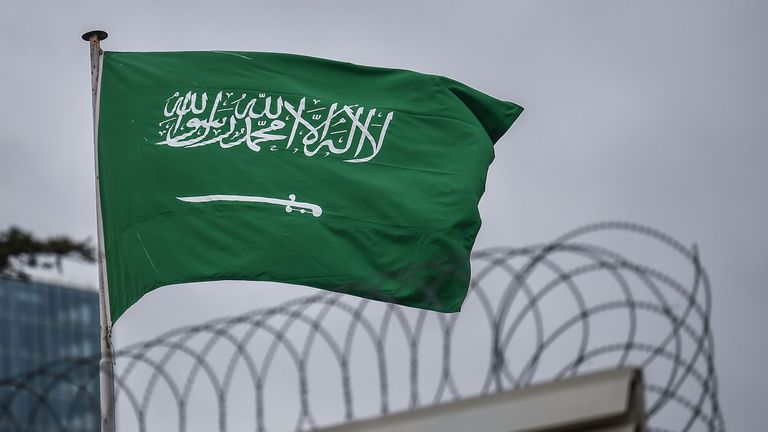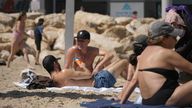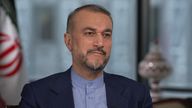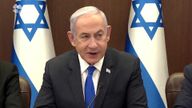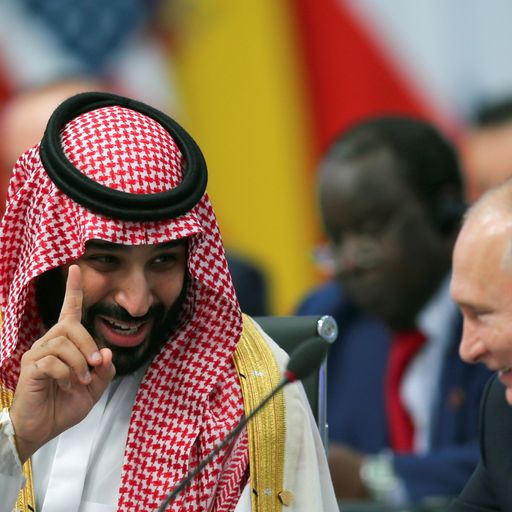Saudis execute 37 in 'bloody execution spree'
The men, all Saudi citizens, were killed for what the Saudi interior ministry said were terrorist and security crimes.
Wednesday 24 April 2019 03:56, UK
Saudi Arabia has executed 37 people, including a man who was 18 when he was convicted of his crime.
It also pinned the executed body and severed head of a convicted Sunni extremist to a pole as a warning to others.
The Saudi interior ministry confirmed the executions, which it described as "implementation of the provisions of the Sharia court against 37 convicted of terrorist and security cases".
The state-run Saudi Press Agency quoted the country's interior ministry as saying the men had "created terror cells to corrupt and disrupt security, spread chaos and provoke sectarian strife, as well as damage peace and social security".
The executions were carried out in six cities across Saudi Arabia and marked the largest number of executions in a single day since 2 January, 2016, when 47 people were killed.
Saudi Arabia has executed at least 104 people this year, compared to 149 in the whole of 2018.
Most of the men put to death on Tuesday were Shia Muslims convicted after "sham trials that violated international fair trial standards" and "relied on confessions extracted through torture", Amnesty International said.
Lynn Maalouf, the charity's Middle East research director, said the killings were "a chilling demonstration of the Saudi Arabian authorities callous disregard for human life".
She added: "It is also yet another gruesome indication of how the death penalty is being used as a political tool to crush dissent from within the country's Shia minority."
Among those executed were 11 men convicted of spying for Iran and at least 14 convicted of violent offences after participation in anti-government demonstrations.
Also among them was Abdulkareem al Hawaj, who was arrested at the age of 16 in relation to his involvement in anti-government protests.
Amnesty said that, under international law, the death penalty cannot be used against people who were children when they committed their crime.
Ms Maalouf said: "Instead of stepping up executions at an alarming rate in the name of countering terrorism, Saudi Arabia must halt this bloody execution spree immediately and establish an official moratorium on executions as a first step towards abolishing the death penalty completely."
Iran's foreign minister Javad Zarif also criticised the executions and what he said was US complicity.
He wrote on Twitter: "After a wink at the dismembering of a journalist [Jamal Khashoggi], not a whisper from the Trump administration when Saudi Arabia beheads 37 men in one day - even crucifying one two days after Easter.
"Membership in the B team: Bolton (Trump's national security adviser), Bin Salman (crown prince of Saudi Arabia), Bin Zayed (crown prince of Abu Dhabi) & "Bibi" (Israel's prime minister)- gives immunity for any crime."
